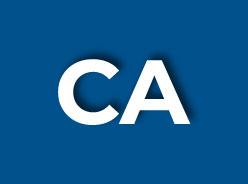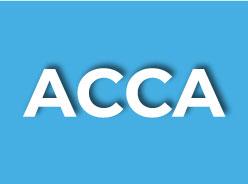Choosing the right career path after completing plus two can be an overwhelming decision for many students. While science and humanities are popular choices, commerce is often overlooked. However, commerce is a diverse and dynamic field that offers a range of career opportunities for students.
In this blog, we will explore 5 reasons why commerce is the perfect choice for students after plus two. We will delve into the various career opportunities available in commerce, the benefits of pursuing a commerce degree, and how commerce education can help students build a successful career in the business world.
Firstly, we will discuss the vast range of career paths students can pursue in commerce, from traditional accounting and finance roles to newer fields such as digital marketing and e-commerce. We will also explore the many benefits of pursuing a commerce degree, including job security, high earning potential, and opportunities for career advancement. Secondly, we will delve into the ways in which commerce education can equip students with the skills they need to succeed in the business world. We will discuss the importance of financial literacy, critical thinking, and problem-solving skills in commerce, and how these skills can be applied in a range of career contexts.
Overall, this blog will aim to inspire and inform students about the many benefits of pursuing a career in commerce after plus two and encourage them to consider this dynamic and rewarding field a viable option for their future.
The field of commerce offers a vast range of career paths for students to pursue after completing their plus two. From traditional accounting and finance roles to newer and more specialized fields such as digital marketing and e-commerce, there are plenty of options to suit different skill sets and interests. One of the most popular career paths in commerce is accounting. Accountants are responsible for managing financial transactions, preparing financial reports, and ensuring that businesses comply with relevant regulations and laws. This field offers a range of opportunities, from entry-level roles to more senior positions such as CFO or controller.
Another traditional career path in commerce is finance. Finance professionals work in a variety of roles, including financial analysis, investment banking, and financial planning and analysis. These roles typically require strong analytical skills and a deep understanding of financial markets and products.
In addition to these traditional roles, commerce offers a range of newer and more specialized career paths. One of the most popular of these is digital marketing. Digital marketers work to promote products and services using a range of digital channels, including social media, email, and search engines. This field is rapidly growing and offers a range of opportunities for creative individuals with strong communication skills.
Another newer field in commerce is e-commerce. E-commerce professionals work to manage and optimize online stores and marketplaces, ensuring that they are user-friendly and profitable. This field requires a deep understanding of online consumer behaviour, as well as technical skills such as web design and data analysis.
Overall, the field of commerce offers a vast range of career paths for students to pursue after completing their plus two. Whether you are interested in traditional accounting and finance roles or newer and more specialized fields such as digital marketing and e-commerce, there are plenty of opportunities to build a rewarding and fulfilling career in this dynamic and exciting field.
Commerce education provides students with a comprehensive understanding of business principles and practices, equipping them with the skills they need to succeed in the business world. Here are some of the ways in which commerce education can equip students with the skills they need to succeed:
Financial Literacy: Commerce education provides students with a solid foundation in financial literacy, which is essential for success in the business world. Students learn about financial statements, budgeting, investments, and other key financial concepts, which can help them make informed decisions and manage their personal finances.
Critical Thinking: Commerce education encourages critical thinking skills, which are essential for success in any business
environment. Students learn to analyze complex data, identify patterns, and make sound decisions based on evidence and logic.
Problem-Solving: Commerce education teaches students how to identify problems and develop effective solutions. This skill is invaluable in the business world, where professionals must constantly adapt to changing market conditions and solve complex problems.
Communication Skills: Commerce education emphasizes the importance of effective communication, both written and verbal. Students learn to write reports, make presentations, and communicate with stakeholders, which can help them succeed in a variety of business environments.
Entrepreneurship: Commerce education encourages entrepreneurship and innovation, providing students with the skills they need to start and run their own businesses. Students learn about market research, business planning, and risk management, which can help them launch successful ventures.
Overall, commerce education provides students with a range of skills and knowledge that can help them succeed in the business world. From financial literacy to critical thinking, problem-solving, communication, and entrepreneurship, the skills learned in commerce education are essential for building a successful and rewarding career.
Here are five reasons why commerce is the perfect choice for students after plus two.
Diverse Career Opportunities
Commerce offers a vast range of career opportunities to students, including traditional accounting and finance roles to newer fields such as digital marketing, e-commerce, and business analytics. Accounting roles include bookkeeping, auditing, and taxation, while finance roles include investment banking, financial analysis, and risk management. Students can also pursue careers in management, marketing, and human resources, among other fields. The diversity of careers in commerce means that students can tailor their education to their interests and develop specialized skills to build a successful career in their preferred field.
Practical Skills Development
Commerce education emphasizes practical skills development, which is essential for success in the business world. Students learn skills such as financial literacy, critical thinking, problem-solving, communication, and entrepreneurship, which are essential for building a successful career. These skills can help students become more competitive in the job market and improve their chances of success in the business world.
Professional Recognition
Commerce students have the opportunity to pursue professional recognition and certifications such as Chartered Accountant (CA), Certified Public Accountant (CPA), Chartered Financial Analyst (CFA), and Certified Management Accountant (CMA). These certifications demonstrate a student's expertise in their chosen field and can enhance their career prospects. They can also open new career opportunities and provide a competitive advantage in the job market.
High Demand
Commerce graduates are in high demand across a range of industries. The global economy relies on business and finance professionals to manage financial transactions, analyze data, and make informed decisions. The demand for commerce professionals is expected to grow as businesses expand and new industries emerge. This means that students who pursue commerce can look forward to high demand for their skills and expertise in the job market.
Entrepreneurship Opportunities
Commerce education encourages entrepreneurship and innovation, providing students with the skills they need to start and run their own businesses. Students learn about market research, business planning, and risk management, which can help them launch successful ventures. Commerce education can also provide students with valuable networking opportunities and access to resources such as business incubators and accelerators, which can help them turn their entrepreneurial dreams into reality.
In conclusion, students who are interested in business and finance should consider pursuing commerce as it offers a diverse range of career opportunities, practical skills development, professional recognition, high demand, and entrepreneurship opportunities. Pursuing a commerce education can provide students with the knowledge, skills, and resources they need to build a successful and rewarding career in the business world

 ABOUT LAKSHYA
ABOUT LAKSHYA  WHY CHOOSE LAKSHYA
WHY CHOOSE LAKSHYA  MISSION AND VISION
MISSION AND VISION  CHARTERED ACCOUNTANCY (CA)
CHARTERED ACCOUNTANCY (CA)  ACCA
ACCA  CMA-USA
CMA-USA  RESULTS
RESULTS 


